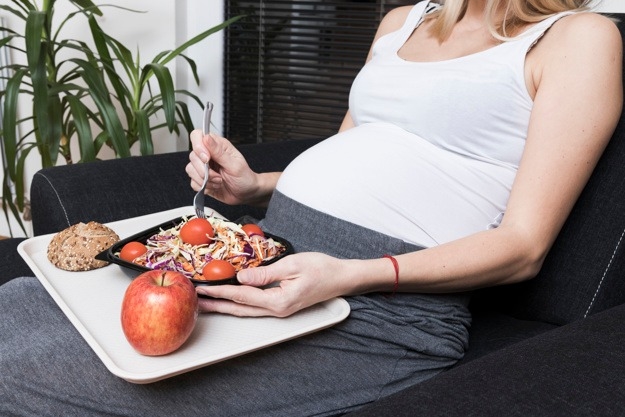
Cravings During Pregnancy And What They Indicate
20 Nov 2018 | 3 min Read
Dr Pankaj Shah
Author | 3 Articles
Food cravings during pregnancy: an important trait of pregnancy!
Food cravings during pregnancy are a peculiar feature experienced by most pregnant women. Symptoms of craving during pregnancy are generally experienced after the nausea and vomiting episodes in the first three months of pregnancy are over. They are usually attributed to the body’s need for making up the lost nutrients.
Are you craving for these food items?
Feel like grabbing a packet of salted chips or gulping down a lemonade? Then go, paint your room blue! It is said that such cravings could indicate a baby boy. Similarly, having a strong desire for chocolates and ice cream could indicate a girl. However, these remain a myth since the studies carried out so far have not come up with any scientific proof about determining gender by the cravings experienced. Craving fruit while pregnant is very common; cravings for lemons, tamarinds, and gooseberry are typically experienced by pregnant women.
What could be the possible symptoms and effect of craving during pregnancy?
Cravings are generally experienced during the first and second trimester of pregnancy, and they are gone by the birth of the baby. The symptoms of craving during pregnancy are listed below:
- Sudden urge for a particular type of food.
- Desire to eat the food item in spite of a full stomach.
- A sudden urge for foods that you have never liked before.
The effects of the cravings will definitely depend upon the food you eat. So, what food item did you long for?
Most commonly, food cravings implicate hormonal fluctuations. The most common effects of craving can be:
- Increased weight of the mother and fetus.
- Compromised dental health of the mother.
- Risk of a stomach infection.
- Altered bowel habits.
Is there anything like a healthy craving, and what foods should I avoid?
Below are some of the do and don’ts for cravings during pregnancy.
You can have:
- A balanced diet
- Water, fresh fruits, and juices
You should avoid:
- Junk food
- Calorie-rich food like chocolates and potato chips
- Spicy food
- Nonfood items like chalk, clay, and laundry starch (pica craving)
Food cravings during pregnancy can completely change the eating habits of a pregnant woman and can lead to weight gain, compromised dental health, and stomach infections. Judicious intake of healthy foods during food cravings can prove beneficial and help in replenishing the micronutrients needed by a pregnant woman.
A


Related Topics for you
Suggestions offered by doctors on BabyChakra are of advisory nature i.e., for educational and informational purposes only. Content posted on, created for, or compiled by BabyChakra is not intended or designed to replace your doctor's independent judgment about any symptom, condition, or the appropriateness or risks of a procedure or treatment for a given person.
